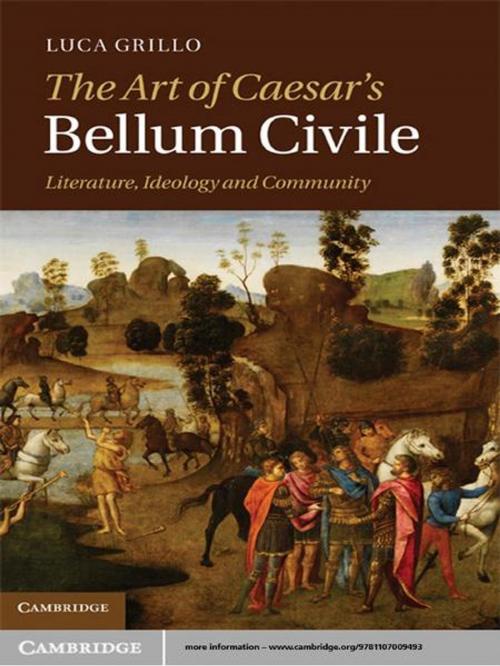The Art of Caesar's Bellum Civile
Literature, Ideology, and Community
Nonfiction, History, Ancient History, Fiction & Literature, Literary Theory & Criticism| Author: | Luca Grillo | ISBN: | 9781139209755 |
| Publisher: | Cambridge University Press | Publication: | January 19, 2012 |
| Imprint: | Cambridge University Press | Language: | English |
| Author: | Luca Grillo |
| ISBN: | 9781139209755 |
| Publisher: | Cambridge University Press |
| Publication: | January 19, 2012 |
| Imprint: | Cambridge University Press |
| Language: | English |
Traditional approaches have reduced Caesar's Bellum Civile to a tool for teaching Latin or to one-dimensional propaganda, thereby underestimating its artistic properties and ideological complexity. Reading strategies typical of scholarship on Latin poetry, like intertextuality, narratology, semantic, rhetorical and structural analysis, cast a new light on the Bellum Civile: Ciceronian language advances Caesar's claim to represent Rome; technical vocabulary reinforces the ethical division between 'us' and the 'barbarian' enemy; switches of focalization guide our perception of the narrative; invective and characterization exclude the Pompeians from the Roman community, according to the mechanisms of rhetoric; and the very structure of the work promotes Caesar's cause. As a piece of literature interacting with its cultural and socio-political world, the Bellum Civile participates in Caesar's multimedia campaign of self-fashioning. A comprehensive approach, such as has been productively applied to Augustus' program, locates the Bellum Civile at the interplay between literature, images and politics.
Traditional approaches have reduced Caesar's Bellum Civile to a tool for teaching Latin or to one-dimensional propaganda, thereby underestimating its artistic properties and ideological complexity. Reading strategies typical of scholarship on Latin poetry, like intertextuality, narratology, semantic, rhetorical and structural analysis, cast a new light on the Bellum Civile: Ciceronian language advances Caesar's claim to represent Rome; technical vocabulary reinforces the ethical division between 'us' and the 'barbarian' enemy; switches of focalization guide our perception of the narrative; invective and characterization exclude the Pompeians from the Roman community, according to the mechanisms of rhetoric; and the very structure of the work promotes Caesar's cause. As a piece of literature interacting with its cultural and socio-political world, the Bellum Civile participates in Caesar's multimedia campaign of self-fashioning. A comprehensive approach, such as has been productively applied to Augustus' program, locates the Bellum Civile at the interplay between literature, images and politics.















